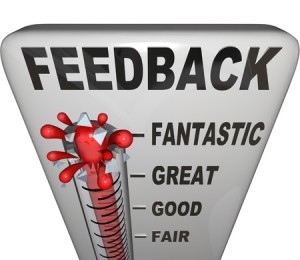By Rose O. Sherman, EdD, RN, NEA-BC, FAAN
 In the programs that I teach with nurse leaders, one area that they struggle with is giving performance feedback when it is negative. They just want their staff to meet their professional expectations. A typical scenario for a young new manager involves a staff member who is repeatedly late to work. The previous nurse manager may have ignored the behavior. The new manager can see the impact that the lateness has on the rest of the staff and is determined to take action. With planning an intentional conversation, the session can quickly deteriorate as the staff member tells the new manager that it has never been an issue before, everyone on staff is late and tries to shift the monkey onto the manager’s back.
In the programs that I teach with nurse leaders, one area that they struggle with is giving performance feedback when it is negative. They just want their staff to meet their professional expectations. A typical scenario for a young new manager involves a staff member who is repeatedly late to work. The previous nurse manager may have ignored the behavior. The new manager can see the impact that the lateness has on the rest of the staff and is determined to take action. With planning an intentional conversation, the session can quickly deteriorate as the staff member tells the new manager that it has never been an issue before, everyone on staff is late and tries to shift the monkey onto the manager’s back.
Performance Feedback especially when negative needs to be carefully planned out and held in a timely manner. Without specific examples of what needs to change, the leader may find that the conversation spirals out of control and becomes very personal.
To be effective, feedback has to have three components:
- It is timely so the recipient is clear on what the problem is.
- It addresses one discreet behavior so the recipient knows what to correct.
- It is explicit in it’s guidance so the recipient knows what they need to do to course correct.
I like the Situation – Behavior – Impact – Expectation Model.
Situation – What happened and when. Example – “Last Monday, you were 20 minutes late for your shift.”
Behavior – You did not notify the charge nurse that you would be late, and this is the second time this pay period that it has happened.
Impact – It may not be your intent but this behavior has an impact on the team. The night charge nurse could not leave on time. Patient report was delayed and the initiation of patient care was delayed.
Expectation – The expectation is that you will be here on time. How will you change your morning routine to make sure that this does not happen again?
Other guiding questions that the nurse manager can use in a performance feedback conversation include:
What don’t I know about this situation?
How do you know that your perceptions are accurate?
What could you have done differently in this situation?
How would you handle this situation in the future?
How do we fix this?
It is very easy to become sidetracked when you are new at these conversations. The approach needs to be supportive but firm. Staff members should leave the session knowing that you value their contribution but aspects of their professional behavior need to change. I always recommend practice and a cheat sheet with bullet points on it that you want to be sure to cover. With time, it definitely will get easier – not pleasant but easier.
© emergingrnleader.com 2018


 LinkedIn
LinkedIn Instagram
Instagram